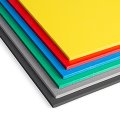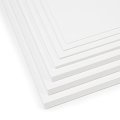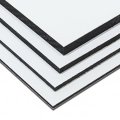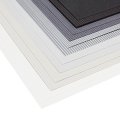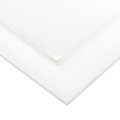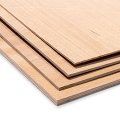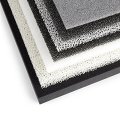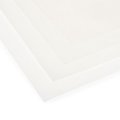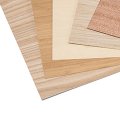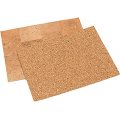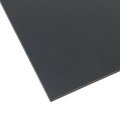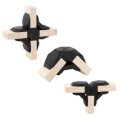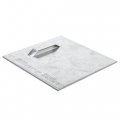Dibond Panels
Properties of Dibond panels
Attributes: Four significant attributes distinguish this composite material made from aluminium and polyethylene: low weight, perfect flatness, high rigidity and weather-resistance.
In order it ensure that the plastic/metal composite Dibond will be recycled properly (sorted to types) the company Alcan Singen GmbH, which is the first and, until now, only producer of alu/PE composite panels, has put in place a system whereby all Dibond waste can be returned to any of their trading partners. The material is separated to type at special facilities and subsequently reused.
The extremely high quality of the lacquer used in production allows every object made from Dibond to be reused many times over because even the removal and exchange of adhesive films covering the entire surface of the material will not leave any traces.
Applications: Because the panels can be successfully printed, sprayed, painted and laminated, as well as glued with films or paper, they are a great material for making signage.
Its dimensional stability, durability and the fact that it is easy to work with predestined Dibond for use in the construction of displays, furniture or trade booths. By means of chamfering and bending or folding, a multiplicity of three-dimensional forms can be created.
In order to provide protection for the edges of Dibond from moisture when outdoors or in case a frame for the panel is required, we carry the aluminium DIBOND U-CHANNEL STRIPS in our assortment.
Treatment: When being stored, Dibond should be protected from rain or splashing water. The protective film should not be removed until ongoing work is completely finished.
Dibond panels can be both screen and digitally printed (flat-bed printer), can be spray and brush painted and also provide a great surface for adhesive films. Its perfect flatness and flawless surface are the basis for the excellent results when laminated with adhesive films or dispersion adhesives – and this to the extent that even large photographs can be affixed without any problems.
Table saws, circular saws, jigsaws and guillotine shears are all suitable for cutting work on Dibond. Curved cuts can be made with a scroll saw but a CNC milling machine or a water jet will produce more professional results. Holes can be drilled using metal drill bits.
Punching work can be done on the panel using a band steel-punching tool on a crucible or simply a sheet steel-punching machine. In order to fold the sheet, the so-called “mill-folding technique” should be employed. In this technique grooves are cut on the reverse side of the panel using a profiling or disc-milling cutter. In doing so, the aluminium top sheet and part of the polyethylene core remain as they were. The reduced thickness of the remaining material makes it possible for the folding to be done by hand – an edging or folding machine is not necessary. The shape and size of the grooves determines the radius of the fold. If the panels are bent without doing the mill cuts beforehand, they will exhibit a similar spring-back effect to that of solid steel sheets.
Joining and fixing work can be done with the usual screws and rivets or by welding the PE core with a hot air plastic welding machine and PE welding rods or by simply gluing. Gluing is best done using metal adhesives for aluminium (e.g. Epoxy two component glues) or two-sided adhesive tapes. For joining and fixing that can be separated and reapplied it is good to use hook and loop tapes like, for instance, the sturdy Dual Lock. The mounting glue adhesive WEICON Flex + Bond is the ideal adhesive for jobs like attaching a bracket on the back of a panel for hanging purposes.
If screws are to be used in an outdoor application, the hole in the panel should large enough to allow the panel to expand without creating waviness. We will be glad to supply you with more complete information about processing Dibond panels upon inquiry.
